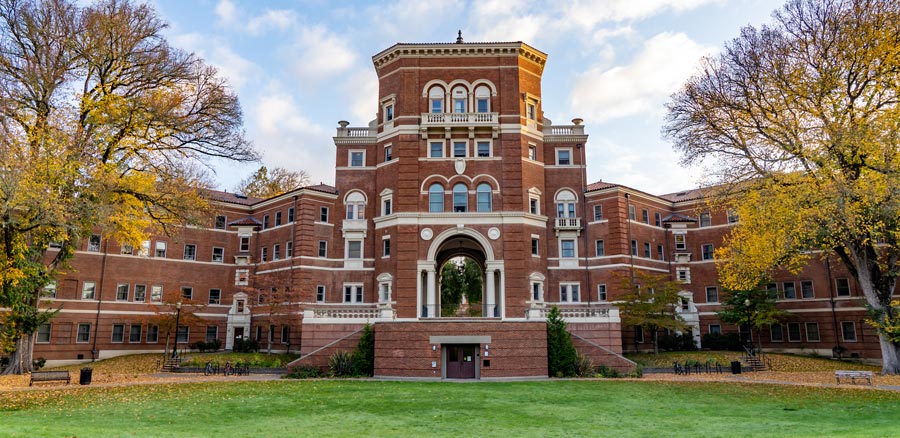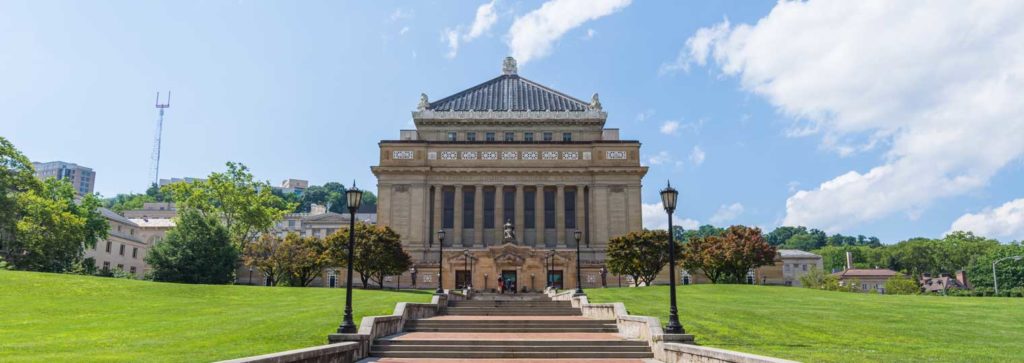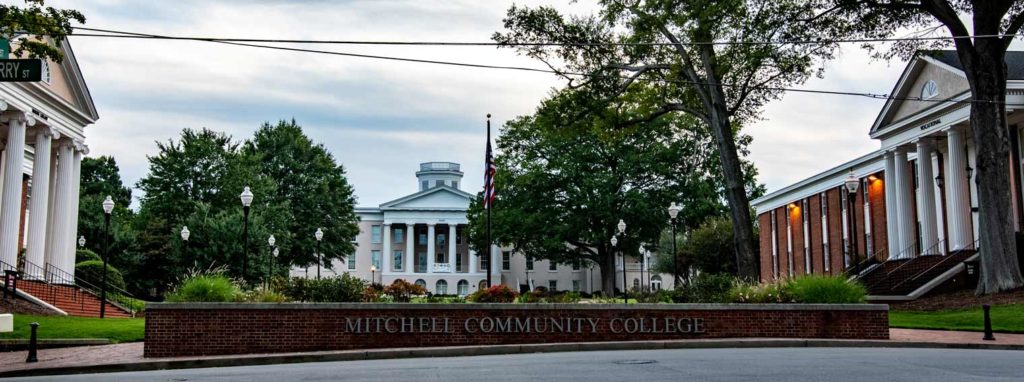A number of essays cited the example of Portugal as a country that was experiencing severe issues with drugs and addiction in its population, and turned to decriminalization of personal amounts and widespread social policy changes. The results have been heartening, and offer valuable life-saving insights for American politicians and our society as a whole. With this focus on decriminalization and public health, we hope readers find some challenging insights and potential solutions to the crisis enveloping our country.
Other students looked at the possibility and potential of alternative treatments to reduce reliance on drugs and break addictive cycles. Read these topical ‘Making an Impact’ essays to discover more about the promise of ibogaine, replicating the policies of Portugal here in the United States, and much more.
1. K.M.R. (Mitchell Community College)
Table of Contents
- 1. K.M.R. (Mitchell Community College)
- Addiction Recovery and Accidental Death Prevention
- Free Access to Drug Testing Sites
- 2. K.K. (Kennesaw State University)
- Resources that Address the Root Causes of Addiction
- Decriminalization and Public Health to Reduce Overdose Deaths
- 3. E.J. Rifkin is a psychology student at Oregon State University
- Holistic Solutions to Addiction Issues
- Implementing Drug Policy Changes to Save Lives
- 4. M.T. (University of Pittsburgh)
- Portugal as a Case Study in Decriminalization
- Decriminalization and Public Health: Outreach and Education
- Medically Reviewed By
I struggled with an addiction to opioids for almost 15 years of my 33 years alive. I have buried way more friends than anyone should in their entire lives, in the last ten. In the United States, until very recently safe injection sites have been illegal. These sites are a safe, medically staffed place where addicts can have their drugs tested for purity, inject in a safe place with a nurse or doctor near by if Narcan is needed to be administered. Just those two things alone, could cut the number of deaths due to drug overdose in half.
Addiction Recovery and Accidental Death Prevention
The biggest of the arguments against these safe injection sites is that they would encourage drug use. This simply isn’t true. People are going to do drugs if they are addicted. It doesn’t matter if it’s at a safe ace where someone can save their life within the first 60 seconds of an overdose, or if it’s in an abandoned building by themselves.
Not only would this drastically reduce the amount of lives lost to overdoses. Having a safe injection site means having a safe needle exchange. HIV and Hepatitis are on the rise again and the number one cause of that is IV drug use. Clean syringes are out of reach in a lot of cities and states. The shame people feel buying and the hyper-inflated prices of needles, encourage syringe sharing.
Free Access to Drug Testing Sites
Finally, having a safe place to go with your drugs and have them safely tested for free would save countless lives. Heroin users are dying by the thousands every single day because of one thing, fentanyl. Users think they know what their buying, and their dying before they ever have a chance to say help. Purity testing being readily available for free, along with clean needle exchanges, and a safe place to speak freely, not be judged and not be pushed into treatment would turn our addiction problem around.
Last, the decriminalization of personal use amounts of any drug would take the stigma of being a drug addict off so many people. That shame, the criminal record, and the fact that it follows.uoi for the rest of your life, is what pushes so many people to just give up and be what they believe everyone sees anyway. When we start treating addicts as people and not lost causes, we start saving lives. Decriminalize. Safe injection Sites. Free Purity Testing. Let’s Save Lives.
2. K.K. (Kennesaw State University)
Things change each day, technology advances, social philosophy shifts, the state of our planet adjusts. One thing that is not new, the thing that humans have had since their inception is addiction. Addiction in humans predates all of our communities and the nations that they are held within. Despite that, it continues to be a battle that hundreds of millions of people fight around the world. I hope for a day where we can eliminate substance abuse and other addictions.
Resources that Address the Root Causes of Addiction
In reaching that day I believe we need to put more resources into supporting those who suffer and seek to better understand the neuroscience behind what begins these addictions. In the United States when someone is caught with an illicit substance they are often charged with a crime. Now this individual belongs to a system that does not seek to address the issue at the root cause.
The person could be sentenced to prison time, which does not address the addiction directly and how to avoid it in the future. They could be punished with nothing but a fine and be sent back out with no assistance whatsoever. Lastly one just might be sentenced to court ordered rehabilitation, while the most promising outcome, sometimes these facilities lack resources to help patients as much as they want to. I believe we first need to decriminalize and regulate illicit drug trade.
Decriminalization and Public Health to Reduce Overdose Deaths
If the supply is controlled, we ensure that individuals get controlled dosage from reliable sources. We also need to socially destigmatize addiction, from something that is an evil life ending battle to a battle that any individual is capable of winning. Showing people that it is relatively normal to have these issues, and it is even more normal to seek help.
Next, I would like to ensure that rehabilitation centers are fully government-funded and have all the resources and staff they require. It can be possible that every individual can be taken care of at a center in the way that is best for them.
There is still a vast gap of knowledge in how our brains function. I believe that if we continue to study and fund studies on what causes addiction from a neurological point of view, we can better disseminate how to identify risk factors and how to disperse substances more safely. It will take resources to help people thrive again, resources that we could easily, realistically spare

3. E.J. Rifkin is a psychology student at Oregon State University
She aims to contribute to the emerging field of psychedelic-assisted therapy through biopsychological research as well as client-facing work. (OSU)
I believe substance abuse disorder rates could be drastically reduced through compassionate policy changes and expanded access to health care, universal basic income, and emerging therapies such as Iboga.
My brother suffers from severe bi-polar disorder and often turned to drugs to “self-medicate.” I have spent many hours pondering addiction and struggled with it myself in my twenties. I came to this singular conclusion, “addictions are not proud.” It is important to remember that addiction occurs when people are vulnerable to it—whether that be through lack of emotional support, a hormonal imbalance, mental instability, social pressure, or a myriad of other reasons.
Holistic Solutions to Addiction Issues
It is rare that addiction plagues those with stable lives and fully met needs. Therefore, it is key to treat the cause rather than the symptom— which is exactly what I intend to do as a Psychology graduate. For people to receive access to medical care, it is critical to create and implement a compassionate universal health care system accessible to all.
Poverty is a major risk factor in addiction as it leads to negative emotional states, lack of access to support, and greater desire for escapism. Universal basic income has been studied and proven to be negatively correlated with drug, tobacco, and alcohol spending. This means that universal basic income allows people to achieve upward mobility in life, thus reducing addiction rates overall.
Implementing Drug Policy Changes to Save Lives
By changing laws, we can save more lives. Decriminalization of drugs has proved effective in lowering addiction rates, as exemplified by Portugal. When addicts are no longer labeled as criminals, they can more safely access recovery assistance, and funds can be reallocated from incarceration into rehabilitation.
The next legal step would be to allow for psychologists and doctors to explore the use of emerging therapies such as ibogaine, psilocybin, and ayahuasca. Current research into Iboga offers incredible promise, particularly for sufferers of opioid addictions, which are traditionally extraordinarily challenging to treat.
The National Institute on Drug Abuse has recently partnered with Delix Therapuetics to research an ibogaine analogue to specifically be used in the treatment of addiction, certainly a step in the right direction! By educating the public on these therapies, working to change their legality, providing support for mental and physical health, and by creating a means out of poverty through universal basic income, I see much promise in the future of addiction treatment

4. M.T. (University of Pittsburgh)
In a 2018 survey, 11.7% of the U.S. population ages 12 or older said that they had used an illegal drug in the past month, up from 11.2% the previous year [1]. In 2019, more than 1 out of every 5,000 people in the U.S. died from a drug overdose [2]. The COVID-19 pandemic likely made this country’s substance abuse problem even worse [3].
Despite the persistence of addiction in the United States, drug policy still looks similar to 50 years ago, when President Nixon first declared a “War on Drugs” [4]; in 2018, nearly 300,000 people were incarcerated for drug-related crimes [5]. Therefore, I believe the best way to reduce the addiction problem in the United States is to try a completely different policy approach—decriminalizing all drugs.
Portugal as a Case Study in Decriminalization
To judge whether this approach would be effective, we can examine Portugal, which started its current tremendously successful policy of drug decriminalization in 2001. In the 1990s, 1% of Portugal’s entire population was addicted to heroin, and the country had the highest rate of HIV in Europe. Today, the overdose death rate has plunged to one fifth of the E.U. average and one fiftieth of the United States’ rate. The HIV infection rate is about one twentieth of what it was in 2000 [6].
By 2011, the number of people in addiction treatment had risen by 60% [6]; consequently, 75% of people with opioid use disorder were receiving medication-assisted treatment, compared to less than 50% in America [7]. The mentality behind this policy switch was to take addiction for what it is—a disease—and thus, to treat drug use as a public health problem, rather than a criminal one.
Under the 2001 law, anyone caught with a small amount (less than ten days worth) of any drug is sent to a local panel of doctors, lawyers, and social workers, where they learn about treatment options [6, 7]. The panels can hand out fines, give community service, or refer users to treatment programs [7]. Instead of focusing on users, police can concentrate on dealers and traffickers, who can still go to prison.
Decriminalization and Public Health: Outreach and Education
This frees up resources for the government to invest in harm reduction tactics. For example, a state-funded NGO called Crescer has outreach teams that walk routes through abandoned construction sites in Lisbon, looking for drug users. They provide them with clean needles, tinfoil, sanitation wipes, and information about available treatment. They are able to help 1,600 users each year [6].
I strongly believe that a policy like Portugal’s in the United States could greatly reduce stigma related to addiction. By having government policies that promote health rather than punishment, the public is more likely to see drug addiction as a disease, rather than a character flaw. Shame about addiction and fear of punishment prevent drug users from seeking help. Removing or eliminating these worries would make these users much more likely to enter treatment, which is the best way to improve the addiction epidemic.
References Sources:
1. “Illicit Drug Use.” CDC.gov. https://www.cdc.gov/nchs/fastats/drug-use-illicit.htm (accessed Dec. 27, 2021).
2. “Drug Overdoses.” CDC.gov. https://www.cdc.gov/nchs/fastats/drug-overdoses.htm (accessed Dec. 27, 2021).
3. “COVID-19 & Substance Use.” DrugAbuse.gov. https://www.drugabuse.gov/drug-topics/comorbidity/covid-19-substance-use (accessed Dec. 30, 2021).
4. History.com Editors. “War on Drugs.” History.com. https://www.history.com/topics/crime/the-war-on-drugs (accessed Dec. 20, 2021).
5. “More Imprisonment Does Not Reduce State Drug Problems.” PewTrusts.org. https://www.pewtrusts.org/en/research-and-analysis/issue-briefs/2018/03/more-imprisonment-do es-not-reduce-state-drug-problems (accessed Dec. 22, 2021).
6. N. Bajekal. “Want to Win the War on Drugs? Portugal Might Have the Answer.” TIME.com. https://time.com/longform/portugal-drug-use-decriminalization/ (accessed Dec. 14, 2021).
7. A. Frakt. “Pointers From Portugal on Addiction and the Drug War.” NYTimes.com. https://www.nytimes.com/2020/10/05/upshot/portugal-drug-legalization-treatment.html (accessed Dec. 29, 2021)
Brandon is a highly skilled content writer and behavioral health marketer with over a decade of experience. In his own words: in my work with Find Addiction Rehabs, I have dedicated my expertise to a cause close to my heart – substance abuse recovery. Through my passion for the field, I’ve successfully compiled a track record of crafting compelling content that educates, inspires, and supports those on their recovery journeys.


